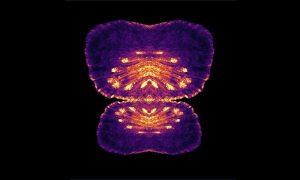
Underwater butterfly
In the Leptin Group, Eva Hasel investigates the innate immune system in Japanese rice fish.
SCIENCE & TECHNOLOGY2020
picture-of-the-weekscience-technology
Showing results out of

In the Leptin Group, Eva Hasel investigates the innate immune system in Japanese rice fish.
SCIENCE & TECHNOLOGY2020
picture-of-the-weekscience-technology
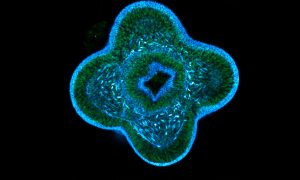
The image shown here, taken by Anniek Stokkermans from EMBL’s Ikmi Group, shows a larva of Nematostella vectensis.
SCIENCE & TECHNOLOGY2020
picture-of-the-weekscience-technology

This image has been composed from thousands of individual super-resolution microscopy images. It was created by Markus Mund in the Ries Group.
SCIENCE & TECHNOLOGY2020
picture-of-the-weekscience-technology
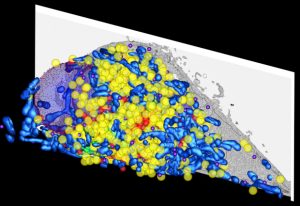
What might also be an artistic representation of a scattered bowl of Skittles is actually a 3D reconstruction of a high-pressure frozen HeLa cell.
SCIENCE & TECHNOLOGY2020
picture-of-the-weekscience-technology
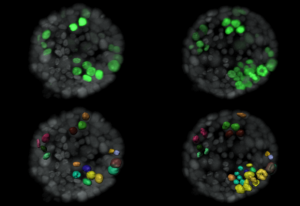
Breast cancer is the second leading cause of cancer-related deaths in women. It is so deadly because tumours often return after successful cancer treatment. This recurrence is caused by individual dormant cancer cells remaining inside the breast. These cells can develop into active cancer cells…
SCIENCE & TECHNOLOGY2019
picture-of-the-weekscience-technology
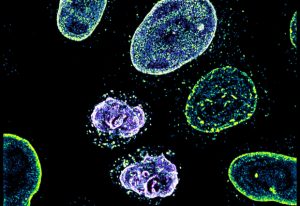
This picture of the week, taken by Arina Rybina in the Ellenberg group at EMBL Heidelberg, shows a high-resolution 3D microscopy image of living human cells: HeLa cells. In this fascinating fluorescing microspace, two newly formed daughter nuclei are captured to study the assembly of nuclear pore…
SCIENCE & TECHNOLOGY2019
picture-of-the-weekscience-technology
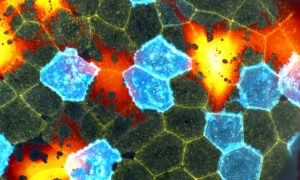
This beautiful mosaic of mostly hexagonal cells is the outer skin layer of a zebrafish larva as seen under a microscope. Each skin cell exhibits a unique pattern of actin ridges. Actin is a family of globular multifunctional proteins found in almost all eukaryotic cells. Actin forms microfilaments,…
SCIENCE & TECHNOLOGY2019
picture-of-the-weekscience-technology
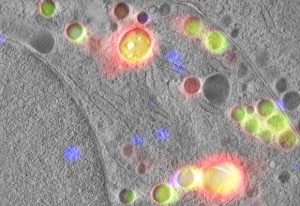
The hormone insulin helps to remove sugar from the blood after a meal. This is important, as in the long term high blood sugar levels damage our bodies. Diabetes of type 1 or type 2 is a direct consequence of a failure to produce sufficient insulin or to release it from the cells in which […]
SCIENCE & TECHNOLOGY2019
picture-of-the-weekscience-technology
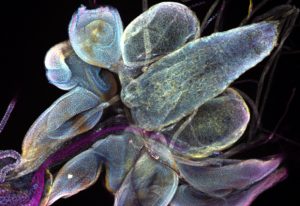
The three bluish blobs shown in the top right corner of this image may not resemble the sphere of noodles that is the human brain, but they are still essential – at least for the fruit fly. This Picture of the Week shows the brain lobes of Drosophila. It’s an insect so tiny and so […]
SCIENCE & TECHNOLOGY2019
picture-of-the-weekscience-technology
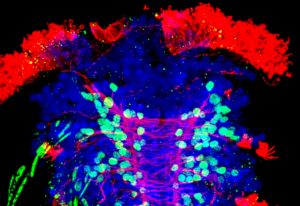
Is it a fungus or a strange plant? Actually it’s the larval form of Platynereis – a group of marine ringed worms. Scientists have been using them in their studies for the past 70 years, and they are among the preferred lab organisms. They are easy to keep in the lab, and under temperature and…
SCIENCE & TECHNOLOGY2019
picture-of-the-weekscience-technology
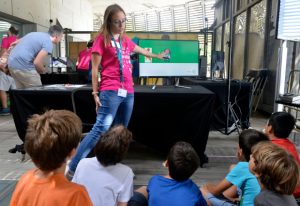
EMBL not only produces excellent science and innovative technologies; it also shares its knowledge and experience with partners from around the world – and with the public. As well as offering teacher training in the European Learning Laboratory for the Life Sciences, science movie nights, and…
LAB MATTERS2019
lab-matterspicture-of-the-week
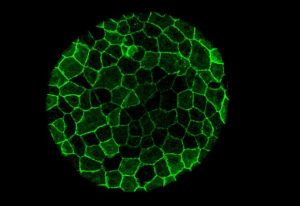
Despite missing the characteristic stripes one would expect from a zebra – or a zebrafish – the fractals in this Picture of the Week show a zebrafish; or at least some cells in a zebrafish embryo, a few hours after fertilisation. Zebrafish are not only popular aquarium fish, they are also an…
SCIENCE & TECHNOLOGY2019
picture-of-the-weekscience-technology
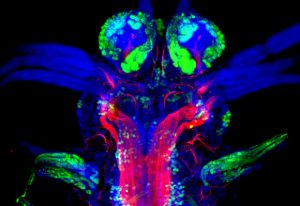
Model organisms are species that are studied extensively to understand particular biological phenomena and processes, with the expectation that discoveries made in the model organism will provide insight into the workings of other organisms. The small marine ringed worm Platynereis dumerilii gained…
SCIENCE & TECHNOLOGY2019
picture-of-the-weekscience-technology
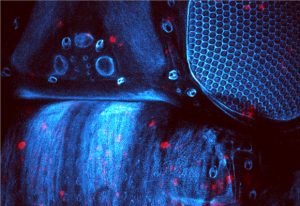
Fruit flies have something that we don’t have: they produce a protein called dumpy. This protein is the largest created by insects, and is comparable in size to the largest human protein – titin. While titin is vital for our muscle function, dumpy connects the soft cells of the insect’s…
SCIENCE & TECHNOLOGY2019
picture-of-the-weekscience-technology
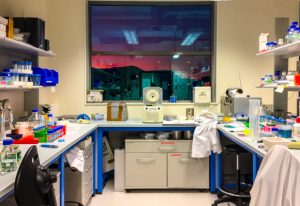
It’s evening and the Sun is setting over the mountains surrounding the city of Grenoble – home to one of EMBL’s six sites – bathing the mountaintops in fiery red light. The Picture of the Week, taken by Zuzanna Kaczmarska shows the lab she worked in after a long and busy day. Bottles…
LAB MATTERS2019
lab-matterspicture-of-the-week
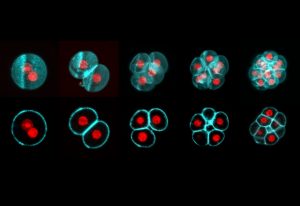
All mammalian life starts with the fusion of egg and sperm, resulting in the creation of a single cell called a zygote. This develops into an embryo through a series of cell divisions, in which the number of cells doubles at each step. Todays’ Picture of the Week was taken by Manuel Eguren of the…
SCIENCE & TECHNOLOGY2019
picture-of-the-weekscience-technology
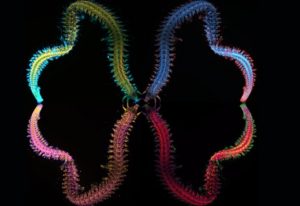
This gorgeous image of a stained adult marine worm was created by former EMBL postdoc Hernando Martinez using structured microscopy. The worm itself was captured during plankton extraction off the coast of Sweden. There are over 10 000 species of these swimming worms, and they have adapted to every…
SCIENCE & TECHNOLOGY2019
picture-of-the-weekscience-technology
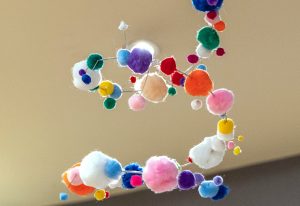
The most basic building blocks of life are the biological molecules in our cells. While these molecules are too small to see with most microscopes, they have incredibly complex and beautiful structures. Therefore, the Protein Data Bank in Europe (PDBe), The Art Society CANTAB and The Art Society…
LAB MATTERS2019
lab-matterspicture-of-the-week
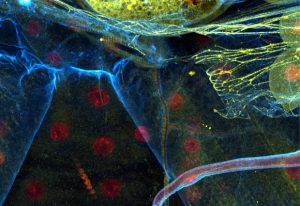
Today’s picture of the week is not only a colourful one, it is also a snapshot of the vast number of shapes that the cells inside an animal body can adopt. How this variety comes about is investigated in the Leptin group at EMBL Heidelberg. To understand the shapes of the cells in fruit fly…
SCIENCE & TECHNOLOGY2019
picture-of-the-weekscience-technology
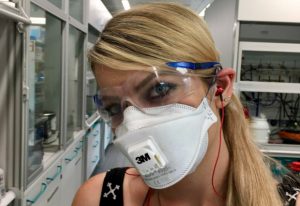
Working in a lab very often requires some kind of protection: gloves, safety goggles, lab coat, hearing protection. Sandra – now at BASF in Ludwigshafen – had fun getting ready for her work in the medicinal chemistry lab at EMBL! Here, she is about to grind potassium permanganate and copper…
PEOPLE & PERSPECTIVES2019
people-perspectivespicture-of-the-week
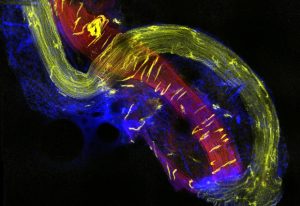
Low blood pressure (hypotension) or high blood pressure (hypertension) are risk factors for many diseases and affect more than 20% of the global population. How blood pressure is regulated is part of the research done in the Heppenstall group at EMBL Rome. In today’s Picture of the…
SCIENCE & TECHNOLOGY2019
picture-of-the-weekscience-technology
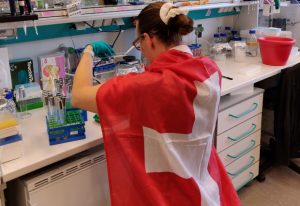
The 1700 people working at EMBL’s six sites come from more than 80 different countries. Many of them haven’t come straight from their home country to one of the EMBL sites but have also lived in other countries in between. While all of them are proud to work at EMBL they are also proud of…
PEOPLE & PERSPECTIVES2019
people-perspectivespicture-of-the-week
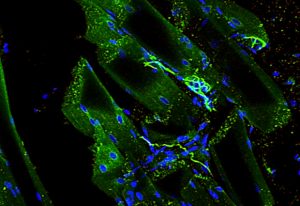
Every single moment of our life we use our muscles – most of the time without even thinking about it. Some muscles, like our heart, we cannot even control at all. How our brain communicates with our muscles is still not fully understood. The communication between our brain and our skeletal…
SCIENCE & TECHNOLOGY2019
picture-of-the-weekscience-technology
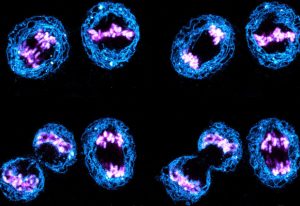
This colourful picture, taken by EMBL postdoc Arina Rybina using a confocal fluorescence microscope, shows human cells in the process of cell division. Eventually, each mother cell brings into existence two identical daughter cells. To visualise the process by light microscopy, different cell…
SCIENCE & TECHNOLOGY2019
picture-of-the-weekscience-technology
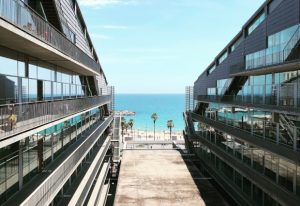
EMBL has six sites in Europe and the newest is EMBL Barcelona. It opened in October 2017 and is still growing. Eventually, it will be home to eight research groups, all of them working to discover how tissues and organs function and develop. EMBL Barcelona is located in the Barcelona Biomedical…
LAB MATTERS2019
lab-matterspicture-of-the-week
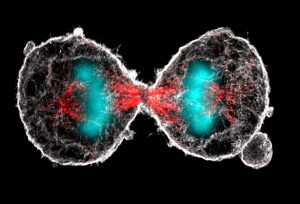
What looks like a pair of scary alien eyes is actually the final stage in the duplication of a cell. Cell duplication is preceded by a process called mitosis, in which the replicated chromosomes are separated into two new nuclei. Mitosis is the prerequisite for a cell to divide into two identical…
SCIENCE & TECHNOLOGY2019
picture-of-the-weekscience-technology

EMBL is an intergovernmental organisation, currently supported by 26 member states, one prospect and two associate member states. There are more than 1700 people working at EMBL, who come from more than 80 countries, creating a multicultural environment. EMBL also operates from six sites in Europe:…
LAB MATTERS2019
lab-matterspicture-of-the-week
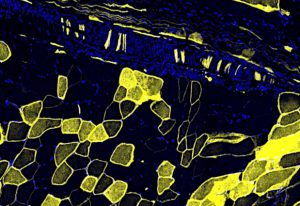
Have you ever wondered what reflex testing is about? Why does your doctor tap the space below your knee with a hammer to see if your leg kicks forward? At the centre of this involuntary reaction is the muscle spindle, of which you can see a close-up in today’s Picture of the Week. Muscle spindles…
LAB MATTERS2019
lab-matterspicture-of-the-week
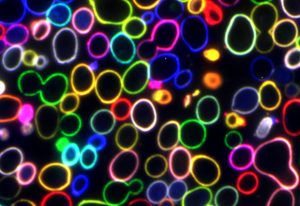
Most of us love brewer’s yeast, or at least the food that it’s helped us to produce since ancient times. Without Saccharomyces cerevisiae (its Latin name) we couldn’t enjoy wine, beer or most types of bread. Besides its role in food production, S. cerevisiae is also an important model…
LAB MATTERS2019
lab-matterspicture-of-the-week

EMBL’s sites provide spectacular views, such as this fiery sunset at the Wellcome Genome Campus in Hinxton. The campus, in the heart of the Cambridgeshire countryside, is home to several institutes and organisations working on genomics and computational biology. Among them is EMBL’s European…
LAB MATTERS2019
lab-matterspicture-of-the-week
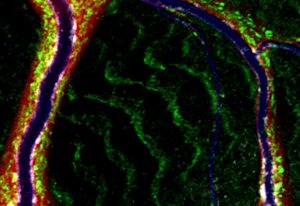
This image – resembling a network of rivers and canals – actually shows the tracheal tip cell of a fruit fly. Fruit flies are heavily used in research and they are a common model organism in developmental biology. Researchers at EMBL use the larvae of fruit flies to study tracheal cell…
SCIENCE & TECHNOLOGY2019
picture-of-the-weekscience-technology

EMBL is a world-leading organisation for life science research. Its scientists work in diverse research fields spanning the whole of molecular biology. While the molecules the researchers are working on are often microscopic and impossible to see with the naked eye, one research topic clearly…
SCIENCE & TECHNOLOGY2019
picture-of-the-weekscience-technology
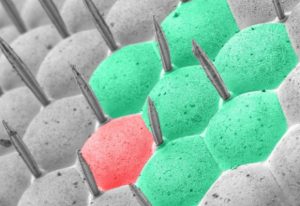
The hexagons visible in this Picture of the Week are the eyes of an ordinary housefly, visualised with a scanning electron microscope. Former staff member Anna Steyer, who captured this brilliant image, has coloured seven of the receptor areas of the eye to create a stylised version…
LAB MATTERS2019
lab-matterspicture-of-the-week
No results found